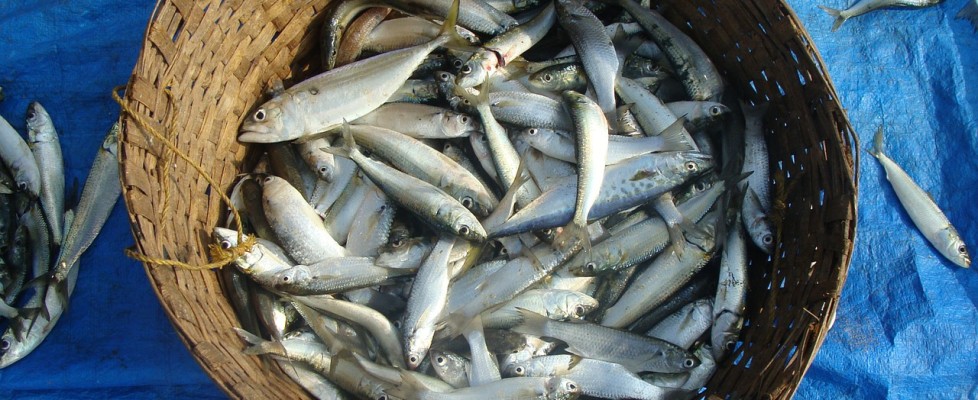There Is No Such Thing As Sustainable Seafood
I’ll admit it. I will come clean. For years as a vegetarian, I still ate seafood. I was one of those people.
It was actually kind of amazing how many people fished for that when I told them I was vegetarian (see what I did there).
I’d say, “Oh no thanks, I’m a vegetarian,” to which they’d reply, “Oh ok, you still eat fish right?”
Of course I’d fess up. My best answer was “I still eat seafood from time to time, but it’s only like once a month.” And that was the honest truth. But I was still eating it!
It’s funny how many “vegetarians” there are that still eat fish and other seafood. For some reason we don’t seem to count it as “meat,” and I think it might have something to do with the fact that it is the only animal we eat on a large scale that is actually captured in the wild.
Everyone knows animal agriculture is terrible.
But we give a free pass to fish because, hey, they got to live their natural life.
Unfortunately, this “natural life” in the oceans is incredibly compromised. We are taking out more fish and other seafood than is naturally regenerated by the ecosystem. This is, by definition, unsustainable.
It’d be like if you made $2,000 a month and had some savings, then rented an apartment for $2,500 a month. That is unsustainable. You don’t even have to like math to know that eventually you will run out of money.
If we don’t drastically reduce our seafood consumption worldwide, we will run out of fish.
I know that’s hard to fathom, but scientists now actually have a date for when this will happen at our current rate of extraction (about 2050). By this year, there will be no viable populations of consumable sea life left.
Just Choose Sustainably Caught?
I used to justify my seafood consumption by “only choosing seafood from sustainably managed fisheries.” It’s true — you can download an app that tells you which types of seafood are “sustainable” and which are not.
Yet this always felt inauthentic to me as well. In our same money scenario, that would be like if someone challenged you on your finances and you pointed out that you make your cell phone payment every month of $100. Sure there is an area of your finances that are under control, but if the whole system is unsustainable, then you making your cell phone payment actually doesn’t mean much. The system will still collapse in time.
Just like 2050 for seafood.
Not Convinced?
Let’s look at some facts:
- For every 10 top predators in the ocean alive 55 years ago (sharks, tuna, swordfish), just 1 remains today. We’ve wiped out 90%!
- 300,000 whales, dolphins, and porpoises die every year entangled in fishing nets!
- Sharks kill 12 people per year; humans kill 11,417 sharks per hour.
- Sea turtles and albatross species are endangered in large part due to fishing operations
- For every 1 lb of shrimp caught, 26 lbs of bycatch is thrown overboard
- Farmed shrimp is likely worse. Mangrove forests are destroyed for the farms, which are farmed to depletion in 2-3 years, and what is left behind is an uninhabitable cesspool
- The U.S. fishing industry alone kills 6 billion animals a year (SOURCE)
- Farmed fish are not a better choice; the waste they produce stifles local rivers and watersheds. They are fed unnatural diets that include ground up fish, corn, and chicken feces, and crammed in tiny tanks where disease rates are high. Farmed salmon are grey and have to be dyed pink and a fishy smell is added. Nutritionally they are inferior and even more contaminated
- Seafood bioaccumulates environmental toxins, not just mercury, but PCB’s, dioxins, arsenic, xenoestrogens, toxic waste, and many more (SOURCE). Our oceans are incredibly dirty and these pollutants make their way into the flesh of the fish we eat.
- The World Wildlife Fund estimates that 90% of ALL fish have already been fished out. This is not a sustainable system. (For more information, check out this INFOGRAPHIC)
But what about omega-3s?
Ah the last vestige of hope for seafood. “But we need to eat it for the omega-3s!”
Plant foods such as walnuts, flax seeds, chia seeds, and hemp seeds all contain ALA — an omega-3 fatty acid which your body uses and converts into the other two omega-3 fatty acids — DHA and EPA. Consume these foods daily and you will have no worries whatsoever. Similarly, whole vegetables have omega-3s, and leafy greens are a great example.
Getting enough omega-3 on a plant-based diet is not an issue. If you are still concerned however, you can use an algae-based DHA/EPA supplement that is safer than fish oil as equally effective (SOURCE). The fish don’t actually make omega-3s themselves anyway — they get it from algae! Just cut out the middle man and take an algal supplement instead!
I no longer consume seafood of any kind because I believe there is no such thing as sustainable seafood.

